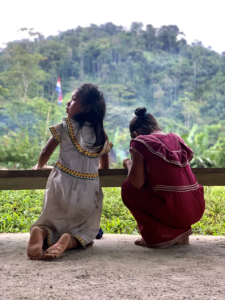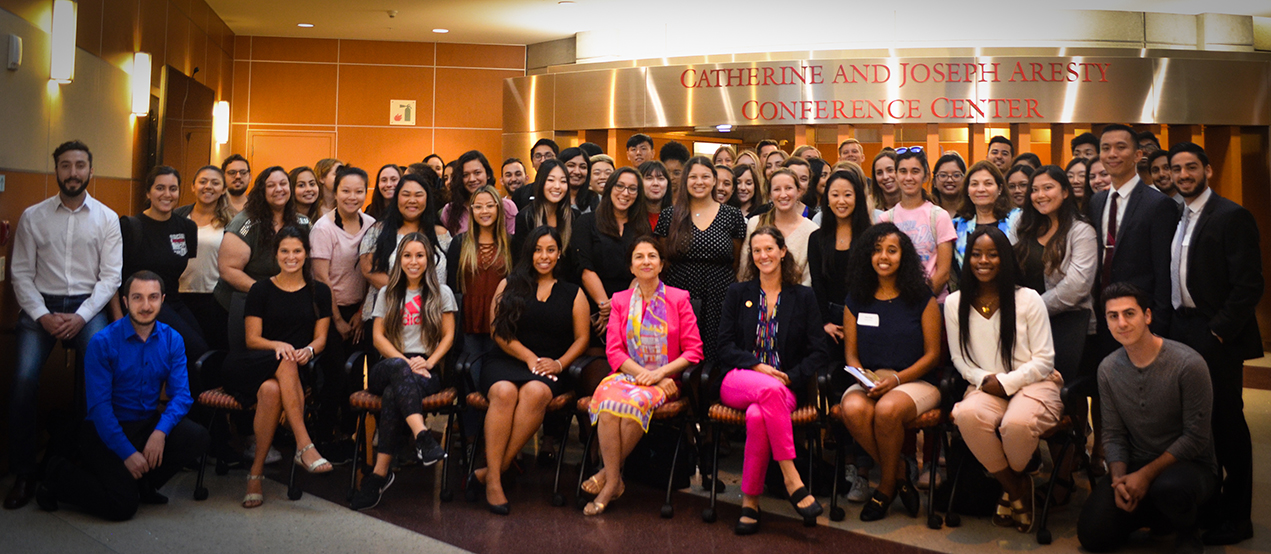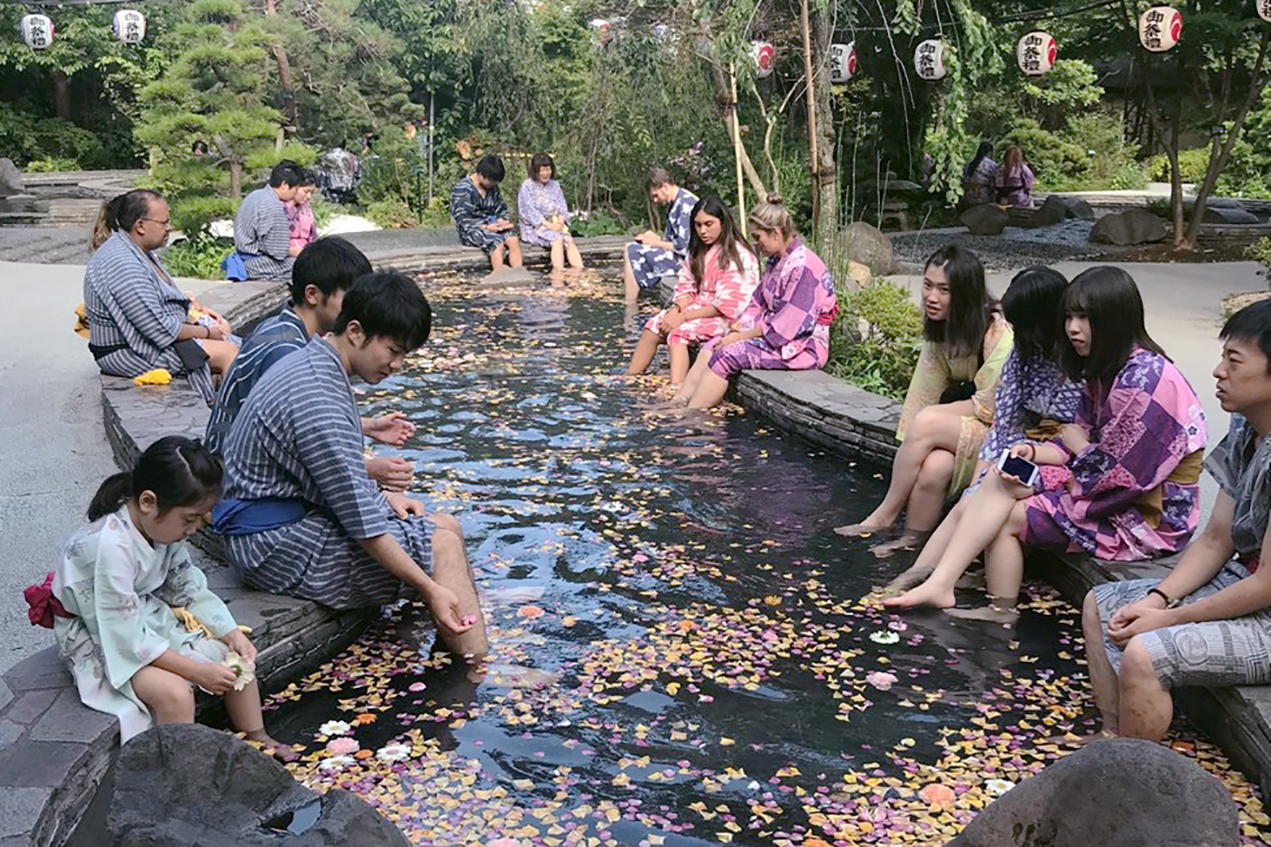Though the school year had just begun, student presenters at the Global Citizenship Roundtable already were sharing tips with their fellow students on how to best use their vacation time during the school year – by taking more classes.
Held on Aug. 30 in Aresty Auditorium, the Global Citizenship Roundtable allowed students to share the highlights of their learning experiences while taking courses in Nepal, Japan, South Africa and Panama with the Master of Science in Global Medicine program at the Keck School of Medicine of USC.
The diversity of the locations made for unique experiences in each country, but several themes proved universal in student discussions. Students reiterated the importance of listening to the people with whom they studied and whom they served in volunteer settings throughout the day. Global Medicine program director Elahe Nezami, PhD, emphasized the importance of recognizing one’s role as a learner while abroad, saying, “Study abroad experiences have become the hallmark of our program, as students return to the Keck School with their eyes opened to the many different ways in which health care is provided and patients are valued by those who treat them. From being awed by the natural beauty of these locations to being touched by the kindness of the people in host countries who embrace our students and share meals and play sports with them, our students gain a firsthand understanding of the value of cultural humility when they are privileged to visit new communities.”

Two children explore their surroundings in Panama. (Photo/Courtesy Claudia Campos)
Students who traveled to Nepal shared insights from their study of nutrition challenges in and the subsequent effects on child development, including studying the efforts of UNICEF and the World Food Programme during emergencies there. Another group focused on the economic and social factors affecting education and the broader impacts for the Nepalese population when education is interrupted.
In sharp contrast to the resource limitations studied by Team Nepal, Team Japan shared their impressions of a nation with a highly efficient mass transportation system and universal health care. Students explored the influence of cultural norms and expectations on health education and compared the nation’s health care to current U.S. models, among other projects.
Students who comprised Team South Africa talked about witnessing the community health work of a tenacious volunteer in the Xhosa community in Hobeni, South Africa, and the importance of trust and understanding to educating people about infectious disease transmission, childcare and family planning, among other topics. By helping Kim Turner, MBBS, MS, part-time lecturer of medical education at the Keck School, to offer a maternal and child health workshop to women in the region, students were part of making health education a community priority for their hosts.
Finally, students who were members of Team Panama recounted traveling by boat to then hike through tropical forests laden with all they would need to sleep, work and support the provision of a medical and dental clinic for the Ngäbe people of La Sabana and Bocas del Toro, Panama. Working with the not-for-profit organization Floating Doctors, which is led by Benjamin LaBrot, MB BCh, clinical assistant professor of medical education at the Keck School, students provided local children with education about basic hygiene and dental care, as well as offering logistical support as patients lined up for the rare opportunity to be seen by clinicians.
The day also featured research reports from several recipients of the Dhablania and Kim Family Global Medicine Fellowship. The generous support of the Dhablania and Kim Family allowed students to perform research in Panama, Uganda, and India. The fellows’ projects covered a wider range of topics, including mental health, neo-natal care and health worker training. The fellows offered formal presentations of their research results and fielded questions from the audience who were interested to know more about how they conducted their field work.
From the DK fellows to the GM students, Global Citizenship Roundtable participants promoted the value of leaving one’s comfort zone to learn what people need from the people themselves. As one GM student commented at the end of her team’s presentation, “this trip reminded me what I am studying for — to really help people who need it most.”
The next Global Citizenship Roundtable will be held during the Spring 2020 semester. For more information about the Global Medicine program, visit https://msgm.usc.edu/.
— Ginny DeFrank

Students presented about their research on study abroad trips in Japan, Nepal, Panama, and South Africa during the Master of Science in Global Medicine’s Global Citizenship Roundtable on Aug. 30. (Photo/Courtesy Global Medicine Program)


